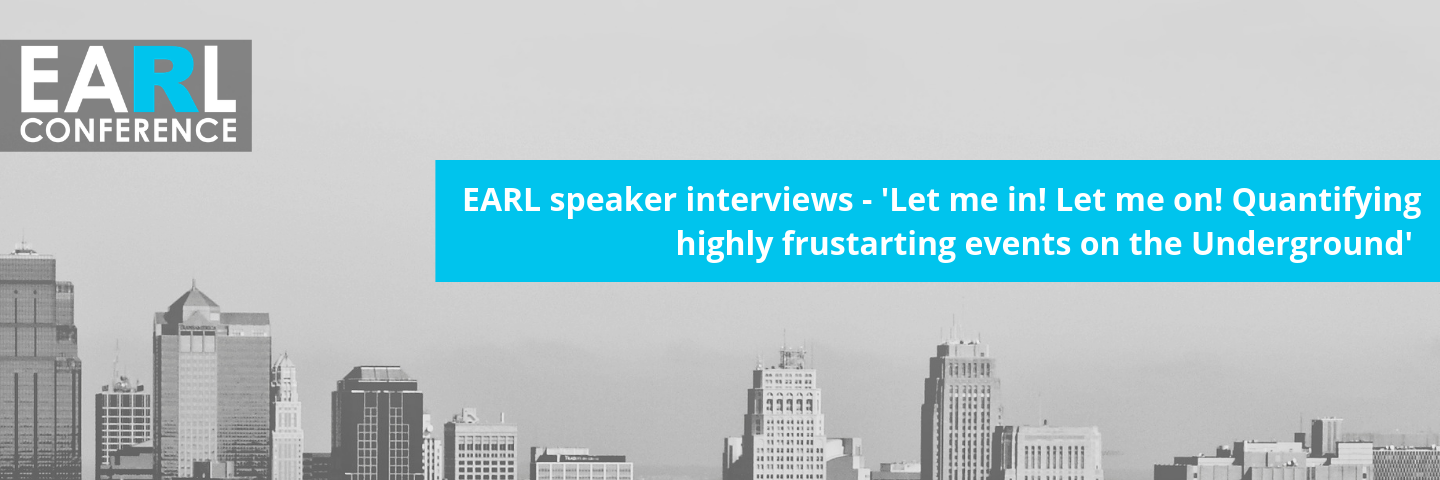
Robert Duff (Transport for London) and Rahulan Chandrasekaran (Department for Transport)
Robert and Rahulan are doing a joint presentation titled ‘Let me in! Let me on! Quantifying highly frustrating events on the Underground’ on 11 September at EARL London. We dropped Robert an email to find out more around the subject of his and Rahulan’s talk.
How do you think technology is shaping modern transport?
Incredibly. It definitely feels like we are in something of a reboot stage at the moment. The challenge is staying relevant and positioning yourself to be flexible enough to adapt. The next advancement could be just around the corner. From the noticeable increase in ride-hailing services, electric vehicles and autonomous vehicles trials, it’s clear that technology is already shaping transport offerings as well as defining how users interact with them. The quality and quantity of information available to both public transport users and road users in recent years has really advanced. And of course, whilst we go on this journey it’s paramount to have safety at the forefront of our mind and to always be on the lookout for opportunities to encourage trips on more sustainable modes.
What challenges do organisations face in helping to shape modern transport?
Although it’s been mentioned a few times recently in various blogs that I’ve read, I’m just going to re-iterate here one of the key challenges. Organisations can do their best to keep up to date with technological trends and have vast amounts of data and the right mix of Data Scientist/Engineers, but the ability to shape really starts with making in-roads towards an organisational culture where data and openness is at the core.
To unlock the benefits of technological advancements you need to have the ability to influence and have decision-makers who are confident when talking about data.
It would be great for example, if everyone knows what machine learning is but we know this won’t happen overnight and part of the challenge is explaining such topics so that everyone has a chance of grasping what they mean. It also helps when everyone is upfront and honest, happily stating when they don’t quite understand – there’s absolutely no shame in asking someone to repeat themselves but in a slightly different way 😊. Organisations with strong analytical communities that fall naturally into the habit of sharing knowledge, learning from each other and unearthing best practices, are the ones in prime position to face this difficult challenge.
Why did you pick R for this project?
Wrangling and Visualising make up a big part of this work so R was a very good fit in that respect. Particularly important for Rahulan (my co-presenter) and I, was the ability to put the data into our stakeholders hands to interact with – and we found some fantastic packages for that.
What are you planning after this project?
The direction of travel for this project is pretty exciting. Since the project has got going, and from what we’re going to present at EARL, we’re now in a position where we have more data than before and in considerable quantities. We can now complement our ticketing and train movement data with WiFi data from within our stations. This gives us an extra dimension as we can begin to think about applying more advanced techniques to our problem, possibly taking a trip into predictive analytics territory with the aim of improving the customer experience.
Thanks to Robert for this interview – please take a look at the other speakers that we have presenting. It’s going to be 3 days of jam-packed R goodness!
There are only 4 weeks left until EARL, you can get your tickets here.

